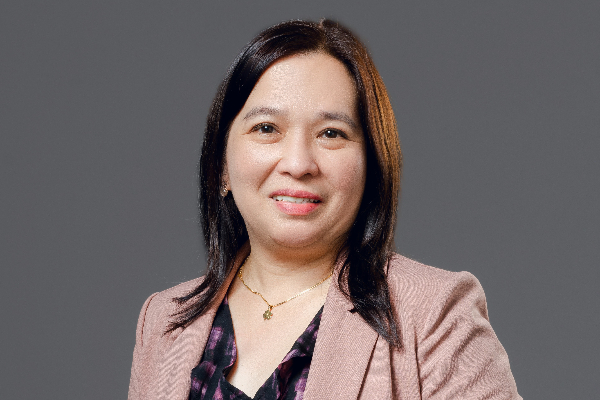
At XLIS, we are committed to providing our young learners a safe and nurturing environment where every child feels valued and a sense of belonging. We are a ‘’Community of Learners’’ and in partnership with our parents and families, we work together to instill a solid foundation for our young students. Our practices are centered around providing authentic learning experiences for students to develop conceptual understandings through making connections, life-long skills, and supporting emotional well-being.
Our Early Childhood Education (ECE) at XLIS follows the IB PYP curriculum framework and inspired by the Reggio Emilia approach. Our philosophy in PYP is centered around our understanding that young children are natural inquirers, have the capacity to learn, and the ability to interact with and interpret the world around them. They are capable learners and curious and have a sense of agency to direct their own learning. The PYP values play as the driving force in the inquiry process and the transdisciplinary approach provides authentic learning experiences for children that support the development of their cognitive, social, emotional, and physical abilities.
At XLIS, our approach focus on the following:
Play – Through play, children develop their understanding of how the world works. It involves choice, promotes agency, and provides various opportunities for exploration and discovery. During play, children actively construct meaning from their interactions and experiences, and by connecting their prior knowledge to new learning to make sense of the world around them. Play provides opportunities for children to develop life skills and the learner profile attributes through negotiation, collaborating with others, adapting different roles, problem-solving, exploration, and reflection.
Relationships – Partnership between home, family, and school play a vital role in promoting and fostering an environment of trust and a sense of belonging. Nurturing positive relationships provides a strong foundation for learning and well-being as well as fostering agency. We are interconnected and children are seen in relation to the family, peers and teachers, school, and the whole community.
Learning spaces – At XLIS, teachers strive to create a safe and stimulating environment that fosters creativity, imagination, risk-taking, discovery, exploration, and where children thrive and supported to pursue their interests.
Symbolic exploration and expression – Play-based learning and planning for uninterrupted playtime with peers provide opportunities for children to develop and enhance their language and numeracy skills through speaking and listening as well as understanding the meaning and uses of symbols. Effective development of students’ literacy and numeracy happens in social contexts where children are able to ask questions, wonder, investigate, make meaning, reflect, and express their ideas and feelings.
PYP Coordinator
Ms. Maria Zialcita
Early Years Education (ECE)
The philosophy of both the PYP and Reggio Emilia adheres to the student-centered, constructivist, and inquiry approaches.
The integration of the Reggio Emilia approach enriched the inquiry program at XLIS. Reggio Emilia which is centered around the philosophy that children are capable, competent, and active learners, values the role of parent-school-community relationships, environment, and teachers as learners, and researchers align with the philosophy of the PYP. The units of inquiry in the early years support the play-based approach which fosters curiosity, creativity, exploration, discovery, expression, and emphasized the learning spaces as the ‘’third teacher’’.
At XLIS, the teachers take many roles such as facilitator, observer, documenter, researcher, and reflection are embedded in our practices. Teachers respond to students’ interests by designing provocations and learning experiences that are open-ended and providing various resources. Collaboration is at the heart of what we do.
Teachers collaborate and work alongside the students, co-construct knowledge, and provide feedback as needed.

The PYP is an inquiry-based curriculum – meaning the programme is driven by students’ interests. The students are taught to research information on topics of their interest, within the boundaries of the unit of inquiry. One of the main theories the PYP is based upon is constructivism. Students are taken from their current level or understanding to a new level of understanding at differentiated paces. Differentiation is very important at XLIS and our teachers have received extensive professional development in this area.
The PYP values play – throughout the programme a high importance is placed on play. Play is what children enjoy most and PYP teachers skillfully guide learning through play. Careful provocations are set up so students can interact with content and concepts through play.
Assessment in the PYP is based on Understanding by Design – meaning a backward planning approach to assessment is utilized. Each unit’s summative assessment is planned at the start of the unit. Lines of inquiry are formatively assessed throughout the unit and planning is adjusted regularly in accordance to students’ needs. XLIS also uses standardized testing to track our students’ progress. Three times a year our students are assessed in the areas of Mathematics, Reading and Writing.
ECE Links
The primary school at XLIS host many workshops, open days, and collaboration events throughout the year. Please see our PYP links below to find out more information.
Primary Student Handbook
Click the button below to read our XLIS primary handbook.
Mission
Vision
Schoolwide Learner Outcomes
Inquirers
Knowledgeable
Thinkers
Communicators
Principled
Open-minded
Caring
Risk-takers
Balanaced
Reflective
Our Teachers
The XLIS makerspace is where engineering comes to life in a transdisciplinary manner. Students come to the space to extend their learning into our units of inquiry. This is a space for creating, designing, tinkering and playing.
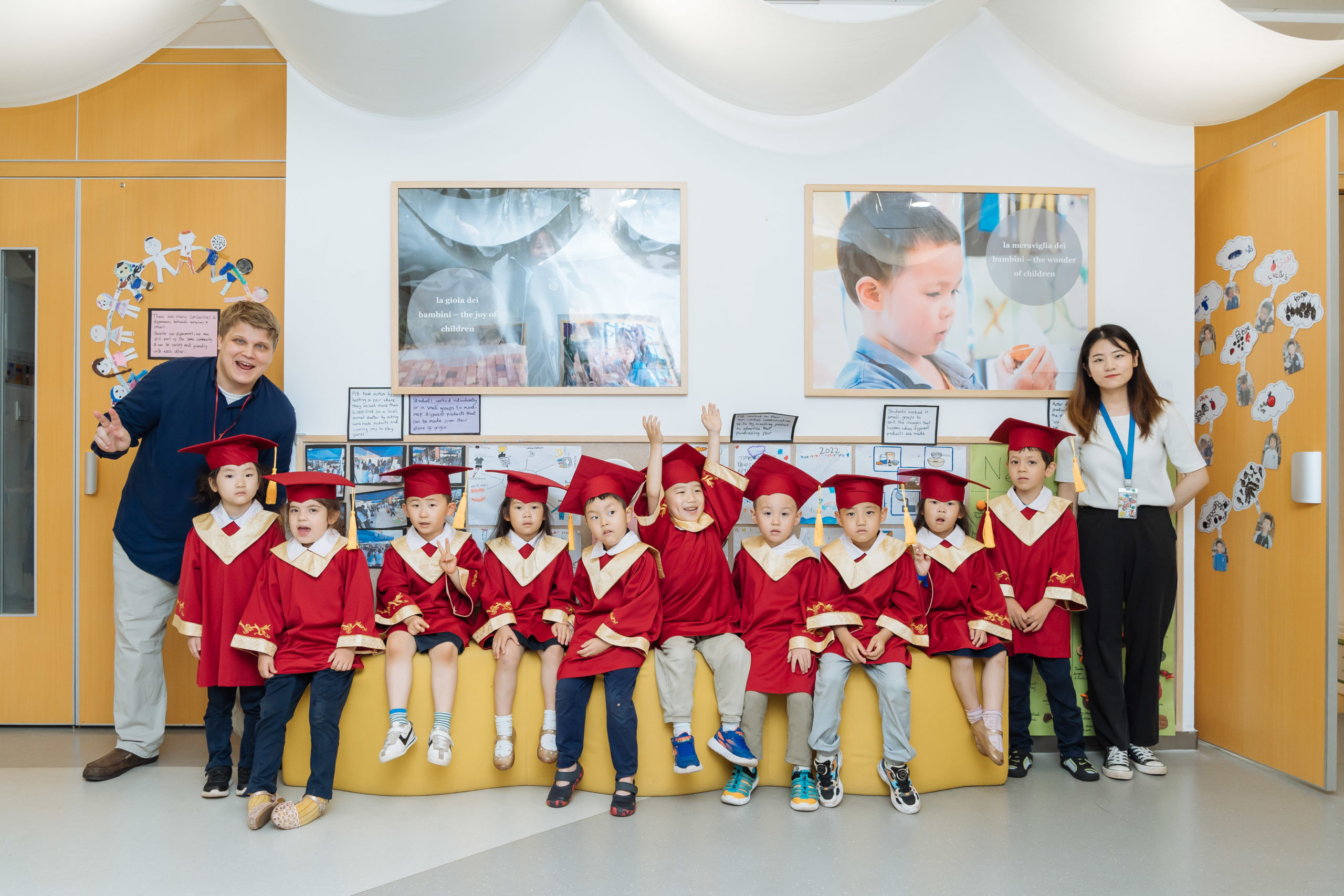
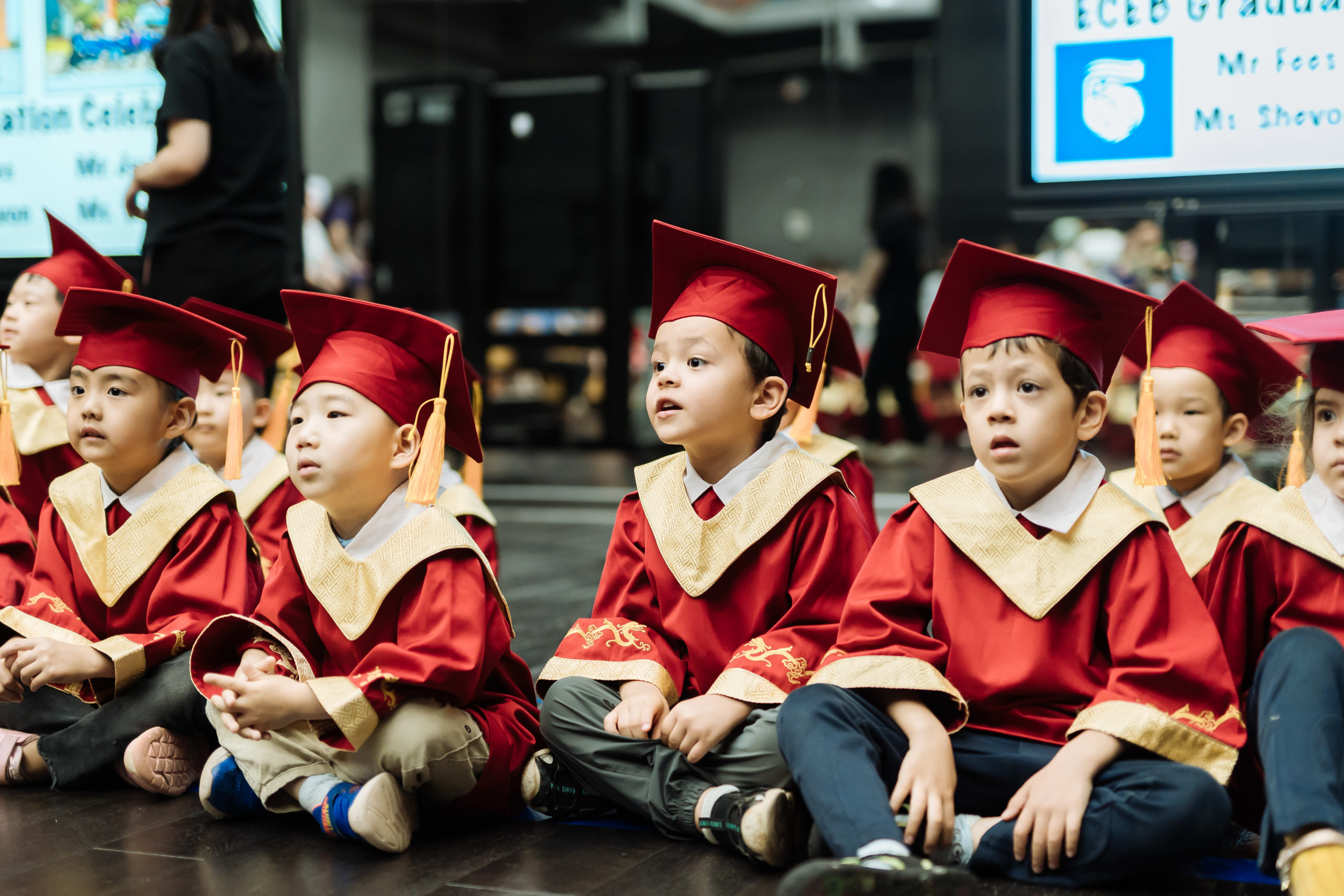
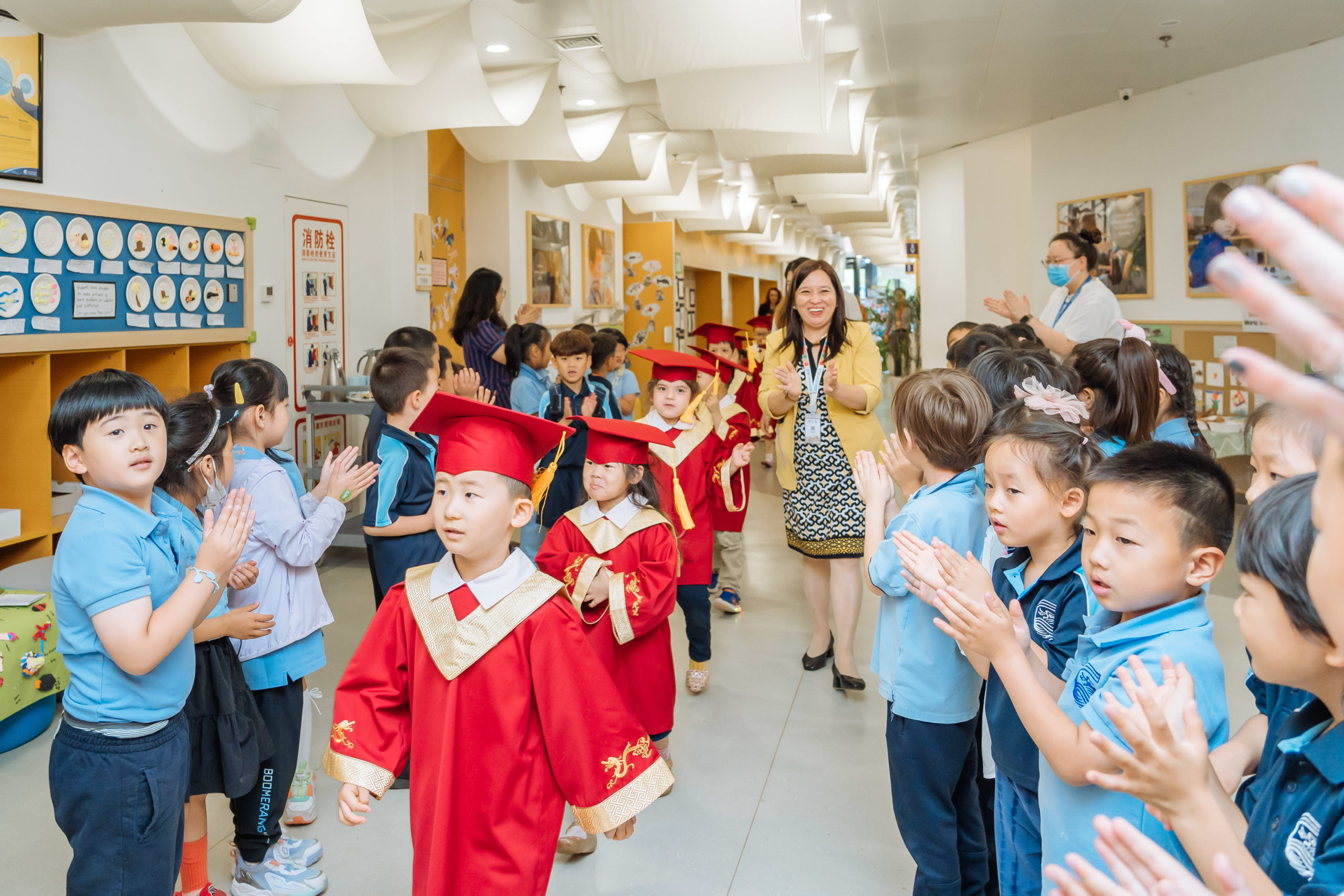
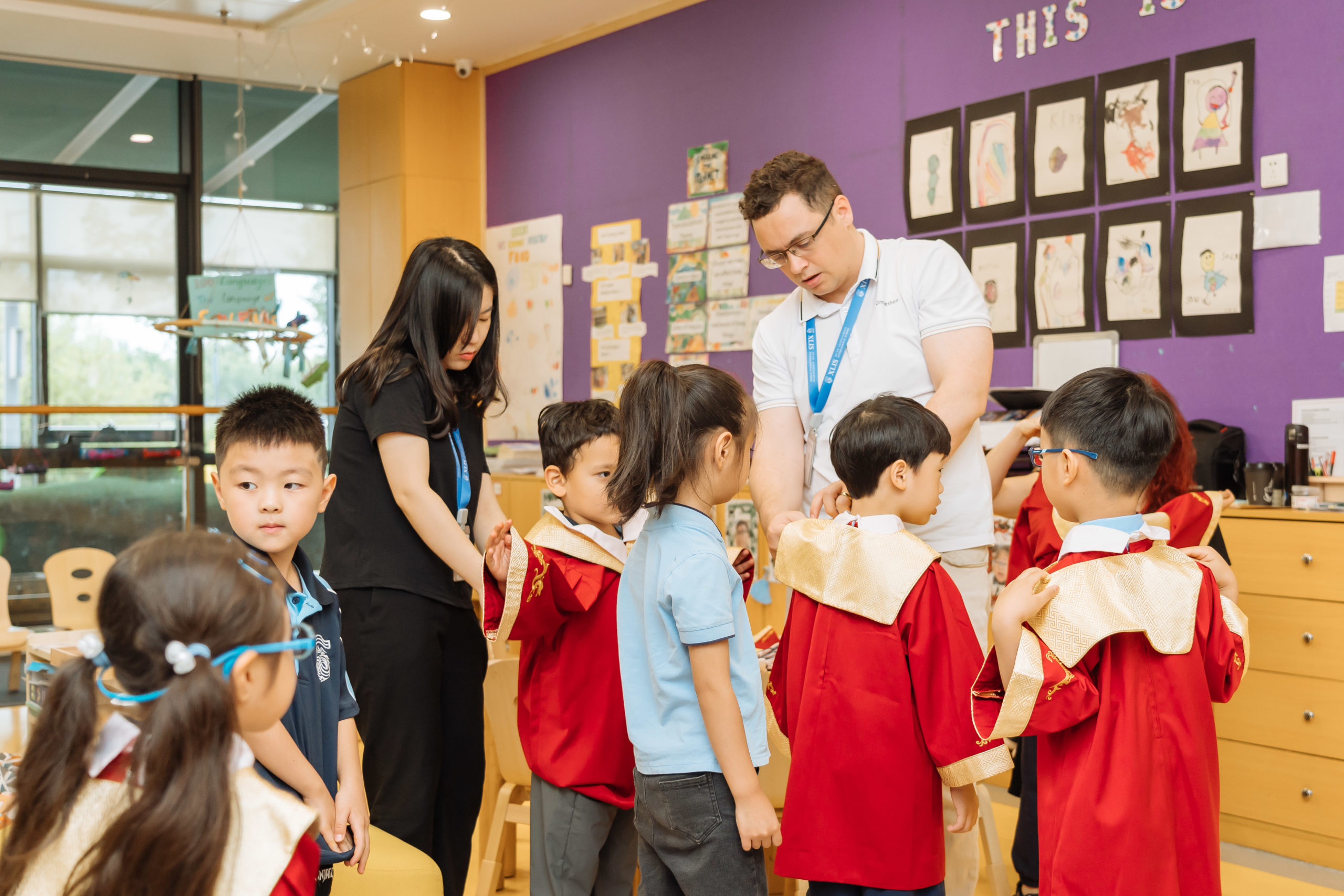
Our teachers are experienced, and each class has a teaching assistant. In the homeroom class, students are taught English, Mathematics, Social Studies, Science, and Social-Emotional Learning Skills.
In addition, students also take single-subject classes for Visual Arts, Performing Arts (Music & Drama), Personal, Social, Physical Education (PSPE), and Mandarin.
We have a Whole School Counselor and Enhanced Learning Teacher (ELT) who work with homeroom teachers and students for social-emotional and learning support needs.
Reggio Inspired
It is our belief that children are capable, curious, and limitless in their creativity. Having a positive image of the child is at the heart of what we believe.
Our students learn through play at XLIS. We believe play to be the most natural form for our students to learn. This may be carefully constructed play in our ECE where our highly professional teachers teach our learning outcomes through play to project-based learning throughout the PYP.
The environment also pays a large part in our philosophy. It is seen as the third teacher and an important source of learning for our entire school community. Our learning spaces have been designed around the philosophy of inquiry and with the student at the centre. Each of our classrooms is designed with 5 essential spaces (makespace4learning.com). There is a display space, community space, private space, presentation space and virtual space. Students can write on the walls or the desks in order to make their thinking visible.










